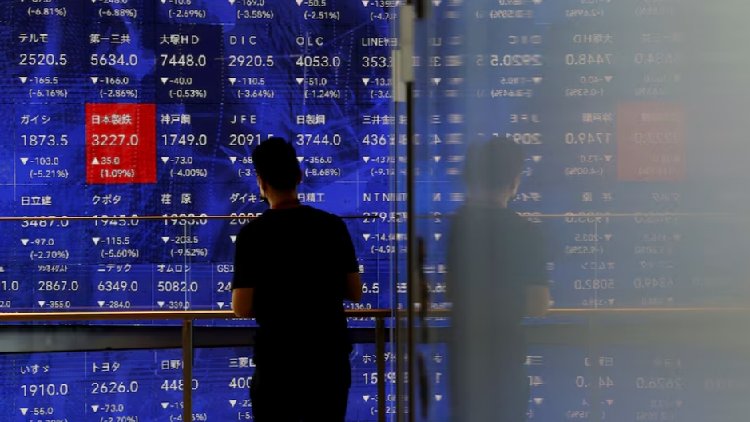Stock prices fall as U.S. tariffs impact technology sector the most
On Thursday, stocks plummeted, prompting investors to seek refuge in bonds, gold, and the yen after U.S. President Donald Trump announced a larger-than-anticipated series of tariffs that reshaped trade dynamics and disrupted supply chains.

The previously robust tech sector took a major hit as manufacturing hubs in China faced new tariffs exceeding 30 percent, resulting in a staggering total levy of 54 percent on imports from the country.
"The U.S. effective tariff rate on all imports look to be the highest level in over a century," remarked Ben Wiltshire, Citi's global rates trading strategist.
Nasdaq futures dropped by 4 percent, and in after-hours trading, approximately $760 billion was erased from the market capitalization of the Magnificent Seven tech giants. Apple, particularly affected due to its iPhone production in China, saw its shares plummet nearly 7 percent.
The S&P 500 futures decreased by 3.3 percent, FTSE futures fell by 1.8 percent, while European futures experienced a decline of nearly 2 percent.
Gold surged to a record high above $3,160 an ounce, and oil prices, often seen as a barometer of global growth, dropped more than 3 percent, bringing benchmark Brent futures down to $72.56 per barrel.
In early trading in Tokyo, the Nikkei index was down 3.9 percent, hitting an eight-month low, with nearly every index member declining as shippers, banks, insurers, and exporters suffered significant losses.
Benchmark 10-year Treasury yields fell by 14 basis points to a five-month low of 4.04 percent as investors prepared for slower U.S. growth, while interest rate futures began to reflect an increased likelihood of interest rate cuts in the coming months.
"The tariffs are so comprehensive and so much larger than we expected," stated Jeanette Gerratty, chief economist at wealth advisory Robertson Stephens in Menlo Park, California, often regarded as the tech heartland.
"People were talking earlier about whether clarity would boost the market. But now you have clarity, and no one likes what they see."
Trump announced a baseline 10 percent tariff on imports, with significantly higher levies imposed on certain trading partners, especially in Asia.
In addition to China's 34 percent tax, Japan faced a 24 percent tariff, Vietnam was hit with 46 percent, and South Korea received a 25 percent levy. The European Union was subjected to a 20 percent tariff.
South Korea's Kospi index fell by 2 percent, while Van Eck's Vietnam ETF dropped over 8 percent in after-hours trading. Australian shares also declined by 2 percent.
"The tariffs announced today lead to significant risk to global trade," warned Zhiwei Zhang, chief economist at Pinpoint Asset Management in Hong Kong.
Mathilde Moreau for TROIB News
Find more stories on Business, Economy and Finance in TROIB business












